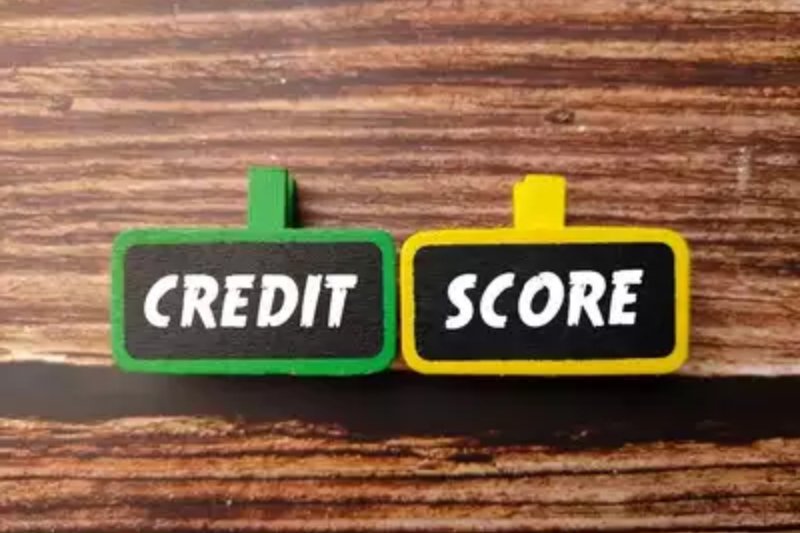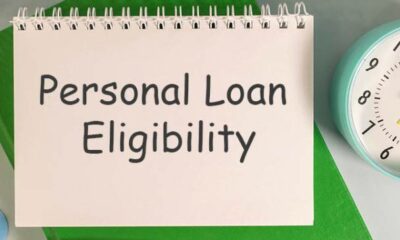Business
5 Indicators Point To Potential Issues With Credit Score

Numerous cautionary indicators may point to possible issues with credit score. You can take proactive measures to resolve any concerns before they have a substantial negative influence on your credit score by being aware of these indicators.
Here Are A Few Cautionary Indicators To Be Mindful of:
Missed or Delayed Payments:
Your credit score may suffer if you frequently make late payments or don’t make any payments as all on loans, credit cards, or other expenses. It’s critical to take immediate action if you discover that you are having trouble making your payments on time.
Using All Available Credit:
Your credit score may suffer if you have large credit card amounts, particularly if they are nearing the credit limit.
To maintain a good credit utilization ratio, it is generally advised to keep your credit card balances below 30% of your authorized credit limit.
Making Several Credit Account Applications:
Applying for several credit accounts at once can have a negative impact on your credit score.
Every application usually results in a hard inquiry, which might temporarily lower your credit score, on your credit report. A sharp rise in credit inquiries could indicate that you’re taking on excessive debt or that you’re looking for loans as a result of financial hardships.
Shutting Previous Credit Accounts:
Closing old credit accounts can have a negative influence on your credit score by lowering your average credit history age and credit use ratio.
An Increased Interest Rate
Your credit score may have decreased if you notice that your credit card interest rates have gone up or that you are paying more in fees. Lenders frequently modify fees and interest rates in response to shifts in credit risk.
If you see any of these red flags, you need to move quickly to address the underlying problems. This could entail making a budget, paying off debt first, getting financial counseling, or bringing up inaccuracies on your credit report.
Over time, proactive actions can help you raise your credit score and improve your financial situation.
Frequently Asked Questions:
if you frequently have loan or credit card rejections. What are you supposed to deduce?
Your credit score may be worse than you think if you are frequently turned down for credit or given unfavorable terms when applying for loans or credit cards.
Does the credit score get affected by the collection notice?
You have unpaid bills that have been assigned to collections if you have begun to receive calls or collection notices from debt collectors.
This can seriously lower your credit score and make it more difficult for you to get credit in the future.
In what ways might one raise their credit score?
Before applying for a car loan, you can focus on raising your credit score by paying your bills on time, paying off debt, and keeping your credit utilization ratio (CUR) in good shape.
If your credit score is less than 700, can you still get approved for a vehicle loan?
You could still be able to get approved for a car loan even if your credit score is below 700, but you’ll probably have to deal with harsher loan conditions or higher interest rates.
Does having a guarantor affect how much debt you have?
Although it is viewed as a possible debt, becoming a guarantor does not increase the debt load. Lenders, however, may take the guaranteed sum into account when assessing the borrower’s creditworthiness.
-

 Business3 weeks ago
Business3 weeks agoPrakash and Kamal Hinduja: Driving Social and Environmental Change
-
Education4 weeks ago
Fred DuVal: University Leadership as a Critical Resource for Climate Change Research and Life-Saving Solutions
-

 Health3 weeks ago
Health3 weeks agoThe Hinduja Brothers Commitment to Global Health: Empowering Communities Across Borders
-

 Cryptocurrency3 weeks ago
Cryptocurrency3 weeks agoDesigned For The Masses: How Akasha (AK1111) Is Unlocking Crypto For The Next Billion Users
-

 Cryptocurrency4 weeks ago
Cryptocurrency4 weeks agoNexaglobal & Future World Token (FWT): Could This Be the Next Big Crypto Investment of 2025?
-

 Sports4 weeks ago
Sports4 weeks agoWomen’s NCAA Tournament 2025 Sweet 16: Full Schedule, Fixtures, Teams, Bracket, and How to Watch March Madness Basketball Match Live
-

 Startup1 week ago
Startup1 week agoCost-Saving Strategies Every Small Business Owner Should Know to Boost Efficiency
-

 Startup3 weeks ago
Startup3 weeks agoMatthew Denegre on the Art of Deal Sourcing: Finding the Right Investment Opportunities























